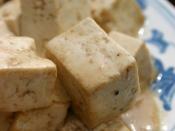INTRODUCTION:
Osteoporosis is the major public health problem in the United States because the disease costs million lives and dollars. Osteoporosis, which means "porous bones," is a condition of excessive skeletal fragility resulting in bones that break easily. A combination of genetic, dietary, hormonal, age-related, and lifestyle factors all contribute to this condition. Osteoporosis leads to 1.5 million fractures, or breaks, per year, mostly in the hip, spine and wrist, with the cost of treatment estimated at $10 billion to $15 billion a year, according to the National Institutes of Health. It threatens 25 million Americans, mostly older women and men. One in three women past 50 will suffer a vertebral fracture, according to the foundation (Munger 147). These numbers are predicted to rise as the population ages. Most causes of osteoporosis are uncontrollable, such as genetics and ages. However, there are also dietary factors and living lifestyles that contribute greatly to the disease.
For more than half a century there were studies and research, which showed that that diets high in protein increase calcium resorption from bone and urinary calcium excretion, thus, increasing the risks for osteoporosis and other diseases (Munger 149-52). First, this paper will give evidences about how diets that are high in protein contents can cause hypercalciuria. Second, it will give the mechanism of how hypercalciuria is caused. Lastly, it will present what types of people are affected by this disease, and how diets high in fruit and vegetables can reverse the process.
THE EVIDENCES:
There were many researches and studies, which proved that high consumption of dietary protein could lead t urinary calcium excretion, and eventually caused hypercalciuria. One of those evidences was a study conducted by Dr. Jane Kerstetter at the School of Allied Health. His study concluded that high levels of dietary protein...


